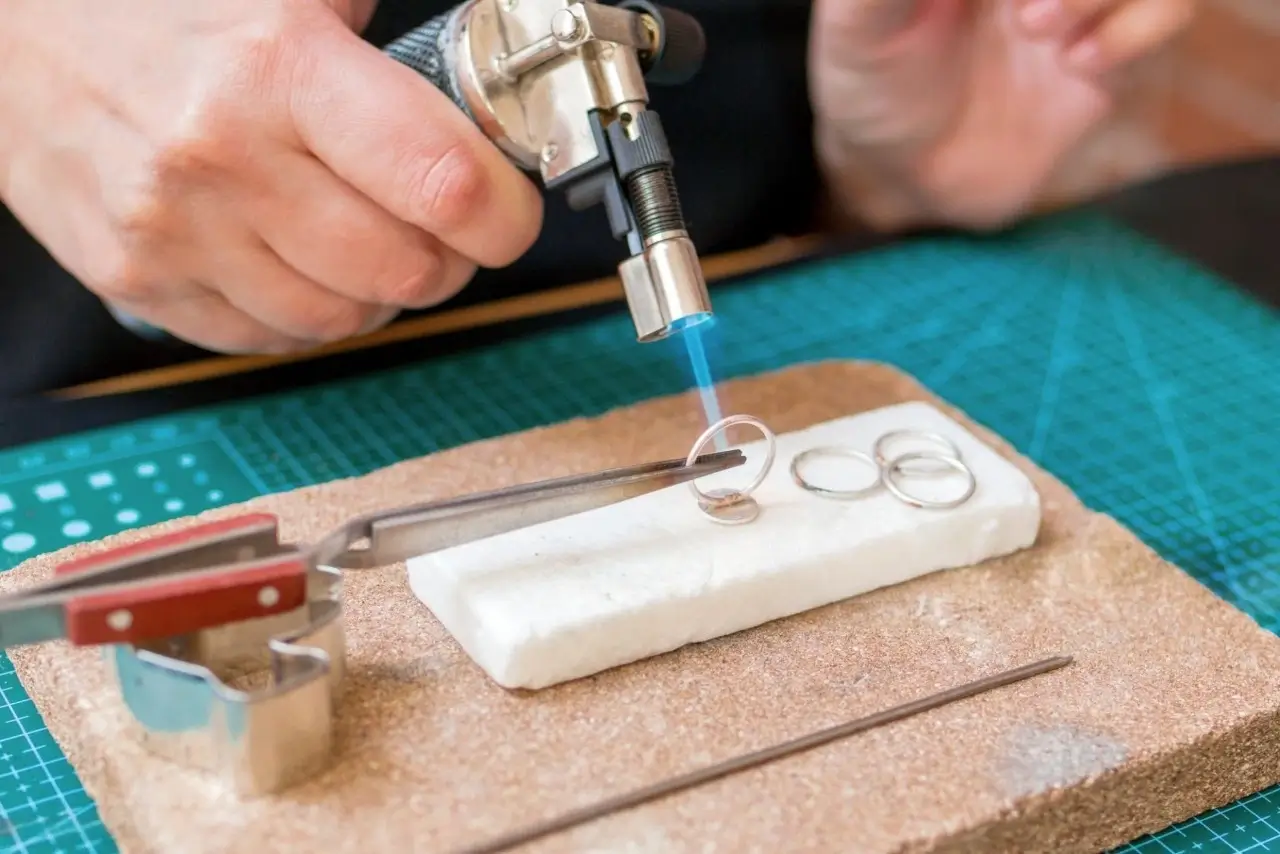A soldering torch is a cornerstone of jewelry making, directly affecting the quality, safety, and efficiency of your work. A poorly chosen torch can damage delicate metals or pose serious safety risks. Selecting a torch that matches your skill level and project needs is essential for achieving precise, professional results.
The Beginner-to-Pro Jewelry Torch
Best Entry-Level/Portable Soldering Torches (Butane Torches)
Handheld butane torches are perfect for beginners due to their affordability and ease of use.
- Target Users: New jewelers on a budget or those focusing on fine soldering tasks like thin chains, earrings, welding beads, or annealing small pieces.
- Fuel Type: Butane gas.
- Advantages: Lightweight, portable, and simple to operate, these torches are ideal for small-scale projects.
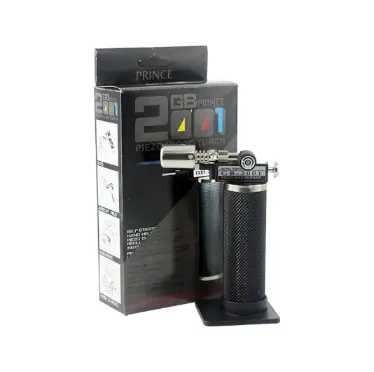
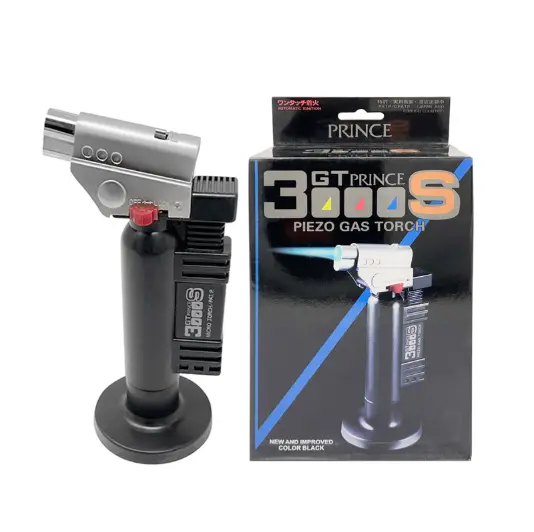
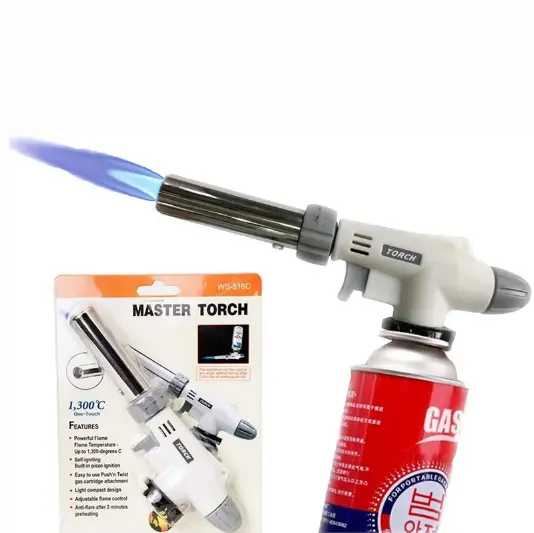
| Recommended Products | Key Feature for Jewelers |
| [Professional Quality] PRINCE® GB-2001N | Emphasized for its durability and precise flame control, it’s the top choice among butane torches for reliability. |
| [Ease of Use] PRINCE® GT-3000SB | Highlights its one-touch ignition and ergonomic design for quick, comfortable use. |
| [Lowest Budget] Butane Torch WS-516C | A highly versatile micro torch suitable for first-time users or as a backup tool for small tasks. |
Best Intermediate/Studio Soldering Torches (Air-Fuel)
This category includes versatile, workhorse torches powerful enough for most silver jewelry projects yet easier to set up than dual-gas systems.
- Target Users: Jewelers crafting medium-sized silver pieces, such as rings or bracelets, or those upgrading from butane torches.
- Advantages: Produces a broad, bushy flame with consistent heat, perfect for annealing and soldering thicker metals. Requires only a single fuel tank, simplifying setup.
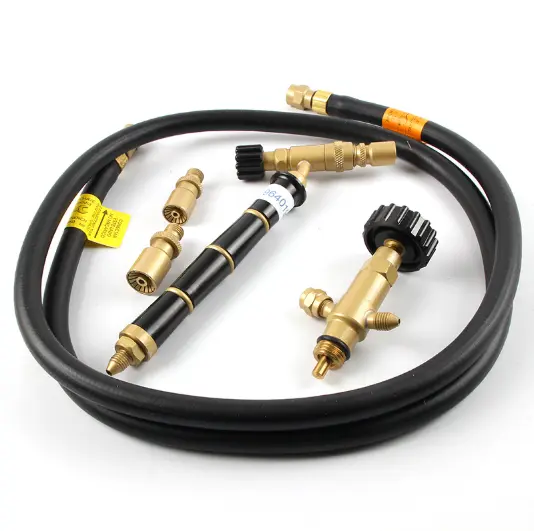
| Featured Products | Key Feature for Jewelers |
| [Propane Top Pick] ORCA® M75 LPG/Propane Kits | This air-fuel torch highlights its convenient connection to standard propane tanks and efficiency in silver jewelry making. A great choice for home studios. |
Best Professional/Precision Soldering Torches (Oxy-Fuel Torches)
Oxy-fuel torches are the industry standard for professional jewelers, combining fuel gas with pressurized oxygen for unmatched precision and heat.
- Target Users: Experienced goldsmiths working with high-temperature metals like gold, platinum, or palladium, or those performing precision casting and welding.
- Advantages: Reaches temperatures exceeding 5,000°F with a highly controllable, pinpoint flame for intricate work.
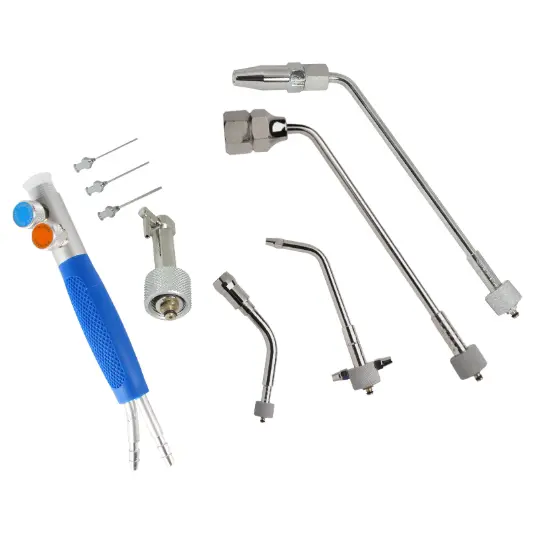
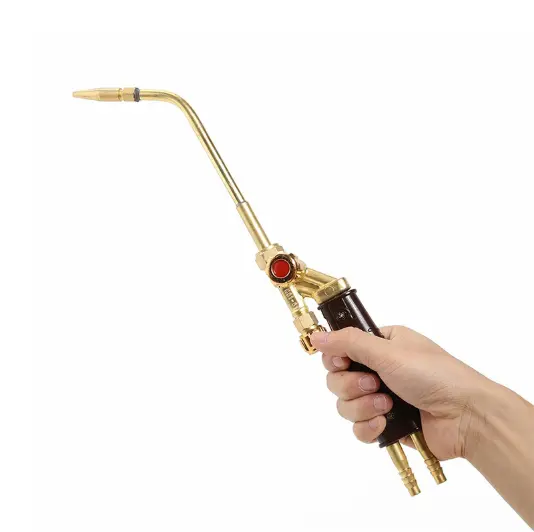
| Featured Products | Key Feature for Jewelers |
| [Industry Benchmark] Stuccler Micro-Head Casting Torch | Highlights its micro nozzle and flame precision, making it the only choice for working with high-melting-point precious metals like platinum. |
| [Heavy-Duty Melting] H01-20/12/6/2 Fuel-Oxygen Melting Torch | Highlights its high power, making it suitable for larger scale casting or welding large pieces of metal where substantial heat is needed. |
Four Key Considerations for Choosing a Jewelry Torch
Selecting the right torch isn’t about buying the most expensive model—it’s about finding the tool that suits your work. Here are four factors to guide your decision:
A. Skill Level and Budget
Your experience and budget will shape your options.
- Beginners: A butane torch ($30–$100) is affordable, safe, and sufficient for small projects.
- Professionals: Oxy-fuel systems ($300–$800+) require a higher investment but offer the versatility to handle any metal.
B. Metal Type and Project Size
The metals you work with dictate your torch choice.
- For heavy silver jewelry, like thick cuff bracelets, an air-fuel torch (e.g., Orca or Smith SilverSmith) provides the uniform, concentrated heat needed.
- Platinum demands the intense temperatures of an oxy-fuel system; single-gas torches won’t cut it.
C. Flame Type and Temperature
Different torches produce vastly different flames.
- Butane torches reach around 2,500°F, suitable for light soldering.
- Dual-gas systems exceed 5,000°F, offering flexibility for fine, needle-point flames (ideal for micro-soldering) or broad, bushy flames (great for annealing). Choose based on your project’s needs.
D. Safety and Work Environment
Safety is non-negotiable for any jeweler.
- Ensure proper ventilation for all torch use to avoid harmful fumes.
- Dual-gas systems require flashback arrestors and secure gas tank storage, so plan your workshop setup accordingly.
Essential Accessories
The right accessories enhance safety and efficiency, regardless of your torch choice.
- Safety Essentials: Flashback arrestors (mandatory for dual-gas systems), protective eyewear, and robust ventilation.
- Soldering Surface: Use quartz plates, fire bricks, or charcoal blocks (charcoal reflects heat back to the workpiece, boosting efficiency).
- Auxiliary Tools: Flux powder (to clean metal surfaces and prevent oxidation) and titanium soldering picks for precise handling.
Conclusion
There’s no universal “best” jewelry torch—only the one that best fits your needs. Investing in the right torch enhances both the quality of your craft and your studio’s safety. Choose based on your project requirements, skill level, and budget, and always prioritize a safe workspace.

